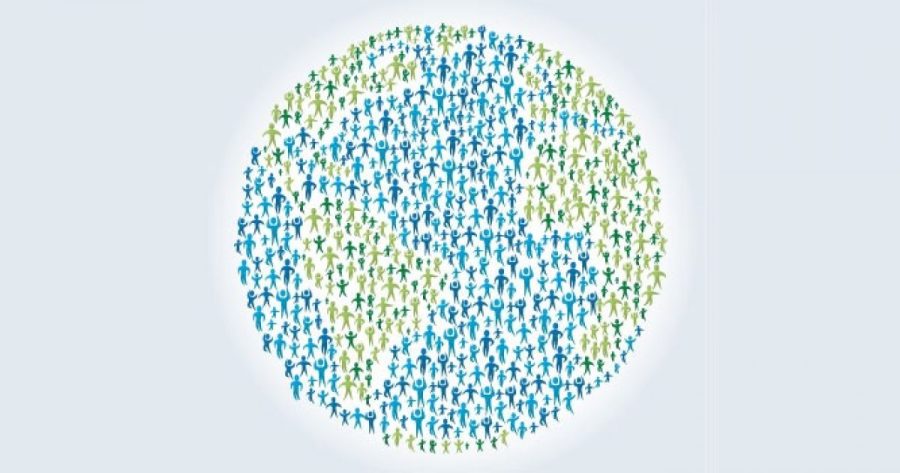With eight billion humans, overpopulation becomes a threat
December 20, 2022
On Nov. 15th, 2022, the estimated world population reached eight billion people, adding a billion people in just 11 years.
The population is growing at an alarming rate, putting hundreds of millions more on the earth every year, but what could this mean for the planet? Experts have informed us for years about the danger of overpopulation, which can cause detrimental and irreversible changes to our society and environment.
According to CNN, “Having more people on Earth puts more pressure on nature, as people compete with wildlife for water, food and space. Meanwhile, rapid population growth combined with climate change is also likely to cause mass migration and conflict in coming decades,” experts say.
Carbon footprints increase with every individual added to the pool, contributing to the emissions that then increase and further worsen climate change. With more people and fewer resources, consumption is likely to become a large topic of concern in the upcoming years in order to maintain what we have and prevent us from running out.
It is hypothesized that policy makers are beginning to bring reform to portion control in order to balance our resources for all.
Fortunately, the overall annual population growth rate has been decreasing at roughly 1% each year, meaning the population’s growth is slowing down.
However, the population is still expected to reach 9 billion by 2037, which is roughly one billion people in growth throughout the span of 15 years. The population is projected to reach a peak of around 10.4 billion people during the 2080s and to remain at that level until 2100. But how many people can the world even sustain?
In a debate regarding global population, Philosopher Thomas Malthus wrote an essay on what he saw as the future of humanity. “Humans’ unquenchable urge to reproduce,” Malthus argued, “would ultimately lead us to overpopulate the planet, eat up all its resources and die in a mass famine.”
However as science and technology have since improved, scientists are now able to tell just how many the earth can really hold before disaster strikes.
According to NBC News, “Many scientists think Earth has a maximum carrying capacity of 9 billion to 10 billion people.”
Using a calculation of the Earth’s available resources NBC additionally shared a section regarding a Harvard University Biologist, Edward O. Wilson’s book “The Future of Life” (Knopf, 2002), “The constraints of the biosphere are fixed” and his calculations. “If everyone agreed to become vegetarian, leaving little or nothing for livestock, the present 1.4 billion hectares of arable land (3.5 billion acres) would support about 10 billion people,” Wilson wrote.
With this being the case, it is absolutely evident and necessary that the population must stay close to this number to avoid a global famine.
Highly populated countries like China have been fighting this number for years, with its one-child policy beginning as far back as 1980.
India on the other hand, with its population at 1.31 billion people, is said to surpass China’s population in the near future. Indian legislatures proposed bills back in 2016 to enact a two-child policy, however it was never passed, although with this new populous milestone, perhaps they will be brought back into consideration.
While scientists do not currently have a definite idea of how to cap off the population or any immediate mandates, there are inevitable changes that are to come rolling in. There will be many different trials and errors, whether it be a one-child policy or moving to mars, but in the end, the more is not the merrier.







